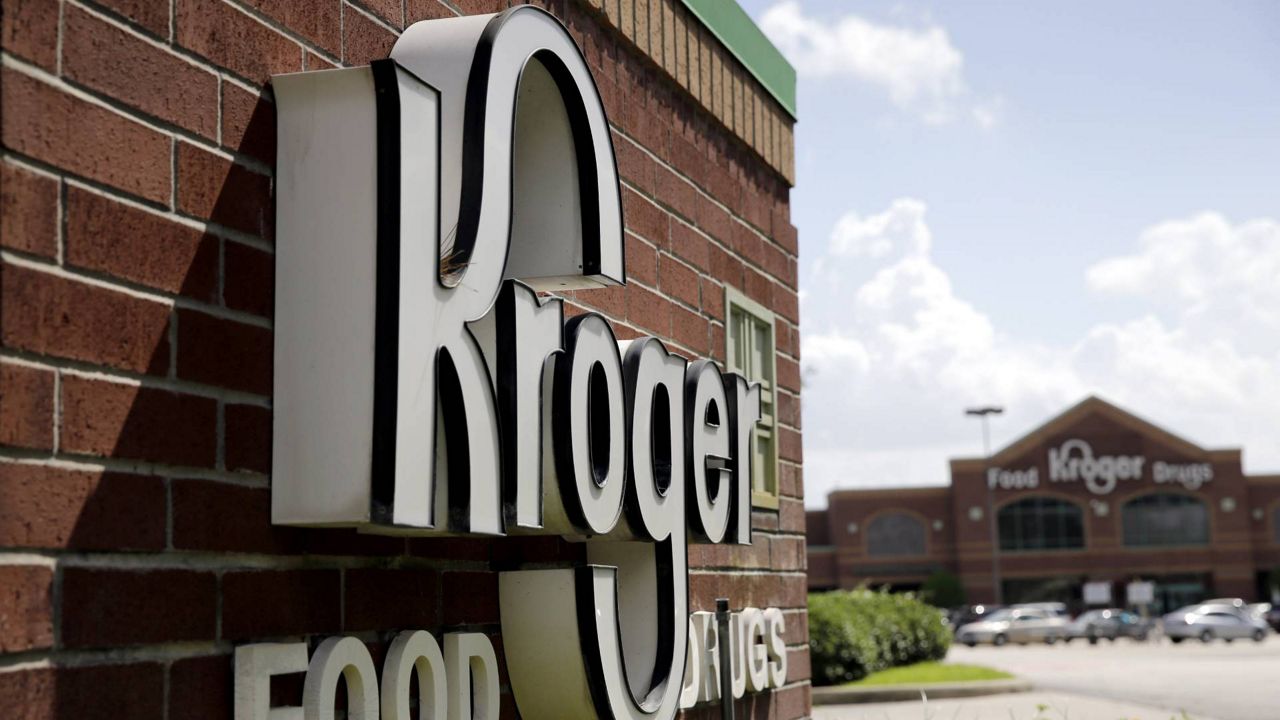LOS ANGELES (CNS) — Two councilmembers Wednesday introduced a motion to have the city investigate the reasons the Kroger Co. decided to close three Los Angeles stores following passage of a city ordinance that requires large grocery and pharmacy retailers to offer employees an additional $5 per hour in hazard pay amid the COVID-19 pandemic.
"The city has an interest in considering whether it should take legislative action to address these closures and potentially future closures of other grocery stores especially in areas of the city that are commonly known as Food Deserts," the motion introduced by Councilmen Marqueece Harris-Dawson and Paul Koretz reads.
What You Need To Know
- Two councilmembers have introduced a motion to investigate the reasons the Kroger Co. decided to close three L.A. stores following the hero pay ordinance passage
- Kroger said that the three stores are "underperforming"
- The company had already drawn criticism after announcing on February 1 that it will close a Ralphs and a Food4Less in Long Beach following passage of that city's ordinance
- L.A. City Council members approved the hero pay ordinance on a 14-1 vote on March 3
"In order to do so, the City Council should seek information from the grocery stores and their executive management to better understand their actions and inform the City Council on ways that might protect the city and its residents from the consequences of these types of closures."
Kroger Co. announced on March 10 that it will close a Food4Less at 5420 W. Sunset Blvd., and two Ralphs stores, one at 9616 W. Pico Blvd. and the other at 3300 W. Slauson Ave., on May 15. Kroger said that the three stores are "underperforming."
In the motion, Koretz and Harris-Dawson noted that Kroger officials said the closures had been long planned prior to the passing of the ordinance, "adding claims that these stores were losing millions of dollars per year."
The Cincinnati-based company had already drawn criticism after announcing on February 1 that it will close a Ralphs and a Food4Less in Long Beach following passage of that city's $4 hazard pay ordinance. Those stores are set to close on April 17.
The Koretz-Harris-Dawson motion would:
- have the City Council exercise its authority to examine witnesses and compel the attendance of witnesses and production of evidence to determine why the Kroger Co. decided to close the stores
- instruct the Chief Legislative Analyst and City Clerk, with assistance from the City Attorney, to formally request the appearance of store executives within 30 days and issue subpoenas if they decline to appear
- use the outcome of the hearings to shape future legislative policy regarding worker protections, essential services in neglected communities and strategies to address "food deserts"
Los Angeles City Council members approved the hero pay ordinance on a 14-1 vote on March 3, with Councilman John Lee the lone dissenter.
The $5 hazard pay is required for all non-managerial employees at grocery or drug retail stores with more than 300 employees nationwide, or more than 10 employees on-site, as well as retail stores, such as Walmart and Target, that dedicate 10% of their sales floor to groceries or drug retail.
The hazard pay is given in addition to employees' base wages for 120 days. According to a report by Los Angeles' chief legislative analyst, which cited ZipRecruiter, the average grocery store worker in Los Angeles earns $17.51 an hour. Kroger said on March 10 that the average L.A. Ralphs and Food4Less employee rate is $18 an hour.
Koretz said before voting for the ordinance, "Supermarkets, as we all know, have made high profits, and yet some are threatening to close. It's clearly out of spite or out of an attempt to leverage us."
Kroger has claimed that grocery stores operate "on razor-thin profit margins."
Los Angeles' chief legislative analyst determined that potential economic impacts of the ordinance include temporary increases of labor costs as a percentage of the company's sales, potential higher prices for consumers, potentially delayed store openings, renovations and wage increases or promotions for employees, potential pressure on struggling stores that could lead to stores closing and reduced hours for some employees.
However, the CLA also determined that the higher wages could also benefit other city businesses, as more people would have extra money to buy additional goods. It could also help people pay down their debts and increase their savings.



